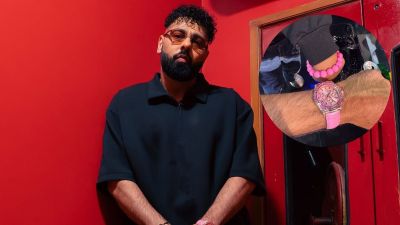VEO commissions labour profile
VADODARA, July 26: The twin onslaughts of liberalisation and globalisation has apparently taught the employers of the golden corridor a v...

VADODARA, July 26: The twin onslaughts of liberalisation and globalisation has apparently taught the employers of the golden corridor a valuable lesson: never take your workers for granted. That is perhaps why they, under the banner of the Vadodara Employers8217; Organisation, have commissioned a Profile of Industrial Workers8217;.
Elaborating on the project, which is fast nearing completion, newly elected VEO president C M Shukul told Express Newsline, 8220;It was floated last year with a view to understanding our workers better. We aim to create a broad database that will help us employers, as well as the government and various professionals, formulate employee development programmes and promote better industrial relations.8221;
Maintaining that it is essential to know the workers, their aspirations and economic and social profiles, Shukul said, 8220;Harmonious industrial relations are a prerequisite in the present grim scenario.8221;
Said project director Dalpat Surupriya of M S University8217;s Business Management Faculty, 8220;The project gave us a unique opportunity to study the behavioural patterns and aspirations of more than 800 industrial workers in 148 small and medium-size units in and around Vadodara, including 61 small units, two giant units, four multinationals and three public sector units.8221;
He added, 8220;We incorporated various parameters in the design of the questionnaire to feed both the International Labour Organisation and the government with relevant data.8221;
Senior manager, corporate relations M L Singhal of IPCL, which partially sponsored the project, 8220;We are members of the VEO and thought that this was a wonderful opportunity for an indepth study of workers8217; wages, needs, working conditions. The conclusions will definitely help us assess ourselves.8221;
The exhaustive six-page questionnaire, divided into nine parts, asked detailed questions of the workers on canteen facilities, the cleanliness of toilets and bathrooms, expectations of employers and the government.
In the Job Profile8217; section, perhaps the most relevant question 8212; in view of the large number of units facing closure 8212; was, Based upon the present style of operation, do you think your company will be able to survive in the future?8217;
Another section sought details on migration patterns, while another asked about the respondents8217; aspirations for their children.
VEO office secretary Malti Baad said the answers often indicated that the workers were multi-skilled, but unable to use them because of absence of opportunity.
8220;Multi-skilled workers is what we need today. The industrial situation is so dynamic that flexibility and adaptability would help us redeploy our labour force, rather than rationalise them8221;, said Shukul. 8220;The results can help the VEO plan for the future of Vadodara and the State at large. We could design our human resources development programmes accordingly.8221;
While other employers8217; associations in the State organise themselves against giving minimum wages and other labour activities, VEO, an 18-year-old employers8217; union, has been constantly interacting with industries in and around Vadodara, said Shukul. 8220;In the wake of globalisation, however, we are focusing on human resources development programmes for employees at all levels, especially the work force, and providing them legal guidance in matters of industrial relations.8221;
- 01
- 02
- 03
- 04
- 05































